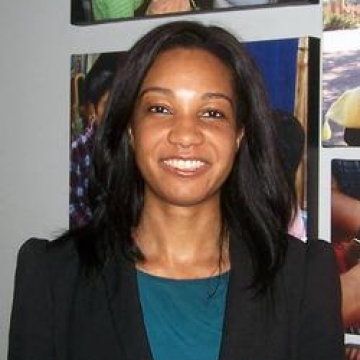Master of Science in Public Health (MSPH) in Global Disease Epidemiology and Control
Offered By: Department of International Health
Onsite | Full-Time | 1.5–2 years
About the MSPH in Global Disease Epidemiology and Control Program
The GDEC Program trains students to use epidemiologic and biostatistical methods to design, implement and evaluate disease control interventions of public health importance to underserved populations. Students have the opportunity to work with faculty at field sites across the world, gaining hands-on experience in global health research and program implementation.
The program emphasizes biomedical interventions (e.g. therapeutic or prophylactic drugs, vaccines or environmental modifications).
This is a STEM designated program. Eligible F-1 visa students can receive an additional 24 months of work authorization, beyond the initial 12 months of post-completion Optional Practical Training (OPT).
MSPH in Global Disease Epidemiology and Control Program Highlights
An interdisciplinary degree drawing on expertise across the School and international collaborators, students acquire a broad understanding of the methods, skills, and tools needed to design, conduct, and analyze community and clinical trials and laboratory-based investigations.
Global Network
Field sites across the world
HANDS-ON TRAINING
Learn through practicums around the world
Applied Learning
Training in epidemiologic and biostatistical methods
STEM Designated
Eligibility for a 24-month STEM OPT extension
What Can You Do With a Graduate Degree in Global Disease Epidemiology and Control?
Alumni enjoy careers in academia, government and nongovernment sectors, and industry and help develop and implement programs to address public health problems facing underserved populations in the U.S. and abroad. Visit the Graduate Employment Outcomes Dashboard to learn about Bloomberg School graduates' employment status, sector, and salaries.
| Organization | Job Title |
| Chesapeake Regional Informational Systems for our Patients (CRISP) | Project Manager |
| Gavi | Senior Program Manager |
| ICF International | Senior Associate |
| Johns Hopkins Bloomberg School of Public Health | Research Associate |
| Management Sciences for Health (MSH) | Technical Advisor |
| Medtronic | Sr. Program Manager, Epidemiology and Market Development |
| PAHO | Consultant |
| PATH | Senior Digital Policy Communications Associate |
| Population Services International (PSI) | Research Associate |
| RAND | Associate Policy Researcher |
| The Children's Hospital of Philadelphia | Clinical Research Coordinator |
| The DHS Program | Survey Manager |
| UNICEF | HIV/AIDS Statistics & Monitoring Officer |
| USAID | Pharmaceutical Management Technical Advisor |
| WHO | Scientist |
Curriculum for the MSPH in Global Disease Epidemiology and Control
The GDEC program is a combination of hands-on learning and course work. Your course work and practicum requirements will help you complete your capstone project and develop the core competencies needed for a successful career in global health.
Browse an overview of the requirements for this master's program in the JHU Academic Catalogue and explore all course offerings in the Bloomberg School Course Directory.

Courses Available in the Following Areas:
- Digital Health
- Epidemiology
- Infectious and Emerging Diseases
- Maternal and Child Health
- Vaccines
Admissions Requirements
For general admissions requirements, please visit the How to Apply page. This specific program also requires:
Prior Coursework
Strong undergraduate background in biology and/or the quantitative sciences
Standardized Test Scores
Standardized test scores (GRE) are optional for this program. The admissions committee will make no assumptions if a standardized test score is omitted from an application, but will require evidence of quantitative/analytical ability through other application components such as academic transcripts and/or supplemental questions. Applications will be reviewed holistically based on all application components.
Alumni Spotlight
Annie Na
MSPH student, Class of 2022
Capstone topic: SARS-CoV-2 infection in children
Capstone description: As part of my capstone project I worked with the SARS-CoV-2 Epidemiology and Response in Children (SEARCh) household surveillance study which investigated SARS-CoV-2 transmission patterns in Maryland households with a focus on infections in young children from 0 to 4 years of age.
Capstone organization: Bloomberg School of Public Health Department of International Health, Center for Immunization Research, International Vaccine Access Center
Advice to students: The Bloomberg School is the perfect place to explore the vastness of public health and a place to merge your passions with your strengths. Take advantage of all the resources around you and don't hesitate to reach out to faculty. They all have valuable experience and have the students' best interests in mind!

Program Faculty Spotlight

Agbessi Amouzou, PhD '06, MHS'03, is a demographer who specializes in measuring, monitoring, and evaluating maternal, newborn, and child health and mortality in low-income settings.

Anna Durbin, MD, studies experimental vaccines for SARS-CoV-2, dengue, West Nile, Zika, malaria, and more in human clinical trials and in controlled human infection studies.

Christine Marie George, PhD, is an infectious disease epidemiologist who designs infectious disease control programs to promote health equity and prevent infections globally.

Tuition and Funding
The Master’s Tuition Scholarship is available to students in good academic standing in a two-year, full-time master’s program. The MTS is a 75% reduction in tuition for year two of an eight-term program.
Additionally, Johns Hopkins University, thanks to support from Bloomberg Philanthropies, offers need-based scholarships for students enrolled in an MSPH program. These need-based scholarships, which cover up to 50% of tuition costs in the first year of study, will enable the best and brightest students with an interest in public health to obtain the highest-quality professional public health education available. Students who are first-generation graduate students, and have exceptional undergraduate academic records, will be prioritized for this need-based scholarship.
To be considered for an MSPH need-based scholarship, applicants should submit their SOPHAS application and supporting documents by the January 15 application deadline, along with the CSS profile to the Financial Aid Office using code 5315 no later than March 1. Applicants should indicate their interest in the scholarship by answering “yes” to the school specific question in their SOPHAS application for the MSPH program of their choice.
Contact Us
Questions about the program? We're happy to help.
Elisabeth Simmons, MEd
Academic Program Administrator
esimmo15@jhu.edu
Compare Programs
- Check out similar programs at the Bloomberg School to find the best fit.
- Master of Science in Public Health (MSPH) in Health Systems
- Master of Science in Public Health (MSPH) in Social and Behavioral Interventions
- Master of Health Science (MHS), Offered by Epi
- Master of Public Health (MPH)
